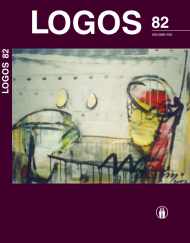Šviesos ir tamsos dialektika arba McLuhanas Platono oloje
Dialectic of Light and Darkness or McLuhan in Plato’s Cave
Author(s): Gintautas VyšniauskasSubject(s): Metaphysics, Epistemology, Ancient Philosphy
Published by: Visuomeninė organizacija »LOGOS«
Keywords: Plato’s cave; the universe; dark matter; media without message; McLuhan;
Summary/Abstract: The article puts together Plato’s cave allegory, Marshall McLuhan’s concept of media without message and cosmological hypothesis on the structure of the universe. Looking at the cave through the prism of McLuhan’s concept, it appears that Plato concentrates attention on everything else except the most important thing – light, be it natural (solar) or artificial (bonfire). This impression confirms McLuhan’s claim, that as a rule the most important media remains unnoticed, for it is a carrier of the communicative content, which naturally absorbs the greatest part of attention. Such discovery is a signal to philosopher’s reorientation that is to paying attention to the light itself instead of illuminated things or their shadows. When light becomes a communicative content of consideration, the question naturally arises, what is the media of this content? The answer is obvious: such media is nothing else but darkness: light shines in darkness. But darkness itself appears as a problem in the astrophysical concepts of dark energy and dark matter. The problem is the uncertainty of dark matter existence. The issue is a principle one not only for the science of physics but also for philosophy as the article tries to show.
Journal: LOGOS - A Journal of Religion, Philosophy, Comparative Cultural Studies and Art
- Issue Year: 2015
- Issue No: 82
- Page Range: 79-89
- Page Count: 11
- Language: Lithuanian

